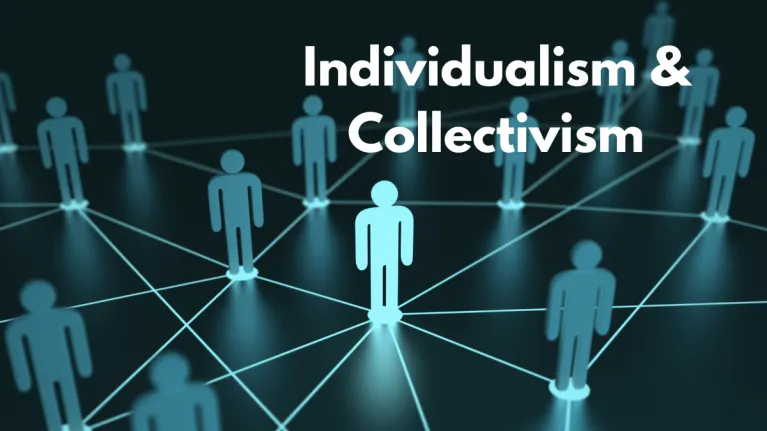Mancur Olson Reading Group Scholars
The Mancur Olson Scholars undergraduate program brings together diverse students to study an important topic of our time. By sharing their own views and hearing the perspectives of their peers, scholars experience the value of free expression and develop scholarly skills.
Reading groups enhance the university experience by helping students explore important ideas, engage in civil discussion, and develop new skills.
Scholars are invited to think critically and engage in robust discussion of ideas. Civil disagreement with one another and the text is not only accepted, but actively encouraged. All students who complete the reading group receive a scholarship. In addition, students are given opportunities to network with guest speakers and attend exclusive events.
Applications for the Fall 2025 semester are now closed.
Fall Reading Groups

Individualism and Collectivism
Mondays 5:30-6:30 p.m.
Location: Richard H. Barry Hall, Downtown Campus
Led by Dr. Robert Mayo
This reading group will focus on the question 'how should choices in a society be made?' We will read an argument for individual choice in "The Road to Serfdom" by Friedrich Hayek and an argument for collective choice in an abridged version of "Das Kapital" by Karl Marx.

Law & Policy
Fridays 11:30 a.m. - 1:00 p.m.
Location: Richard H. Barry Hall, Downtown Campus
*Note this group will meet for 7 weeks due to the sessions being 90 minutes in length.
Led by Andrea Smith, J.D.
This reading group will consider differing perspectives within recent and often controversial court decisions. The topics/cases discussed will be influenced by student interest – possibilities include free speech, privacy law, corporate interest in politics, religious freedom, antidiscrimination laws, immigration law, etc. The group will explore legal reasoning, dissenting opinions, and the broader social and political implications of these decisions. Through guided discussions, students will hone critical thinking skills, gain a deeper understanding of the judiciary's role in shaping public policy, and enhance their ability to understand appellate court decisions.

AI, Education, and the Future of Learning
Fridays 1:00-2:00 p.m.
Location: Richard H. Barry Hall, Downtown Campus
Led by Dr. Ahmad Al Asady
In an era where artificial intelligence is reshaping nearly every aspect of society, education stands at a crossroads. AI offers powerful tools that can enhance learning, but its misuse—particularly as a shortcut to bypass intellectual effort—raises profound ethical and practical concerns. Are students still learning if they outsource thinking to machines? What happens when AI-generated work is indistinguishable from human effort? And how will a generation accustomed to AI assistance navigate a workforce that demands critical thinking, diligence, and problem-solving skills?
This reading group will explore the intersection of AI, academic integrity, and the evolving role of education. Through thought-provoking readings and discussions, participants will critically examine the ethical dilemmas, unintended consequences, and potential reforms necessary to ensure that AI serves as a tool for empowerment rather than a crutch for intellectual disengagement. Rather than approaching AI as inherently good or bad, we will grapple with the nuances of how technology shapes learning behaviors, work ethic, and the broader cultural value of effort and mastery.
